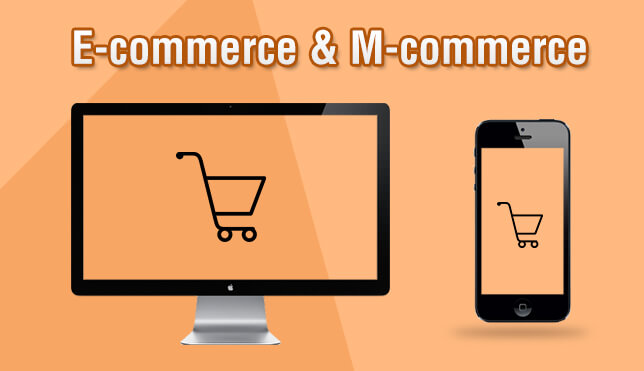Dominance Of M-Commerce
In the next five years, mobile commerce will immensely dominate the market than what it is today. It is forecasted that the use of desktop PC will drop continuously even though PC makers incorporate exclusive functionalities and design like touch screen mobile phones in the upcoming PC or laptop models. Over these advanced PCs, consumers will prefer to buy wearable computers like Smartwatches or Smartglasses. Consumers will buy “Internet of Things” for their home as well as car which mean web-connected devices.
Location And Context Must Be The Focus
Internet retailing experts have forecasted, “Retailers need to focus on the location and context of a consumer rather than on the kind of device a consumer may use”. Further for retailers, to recognize the best means for serving customers over the use of tablets or Smartphones will be the vital priority as context will be a highlighting factor when mobile phones dominate the pathway of consumer interaction with the web. Today the time spent on online retail via use of Smartphones or tablets is 55%. This shows what the ratio will be in the next 5 years!
As per the Usability Sciences Corp, in the upcoming 5 years, eCommerce and mCommerce will still exist on laptops and Smartphones respectively. Even though for customers, online shopping would mean to research or buy anything on any handy device that best suits them.
A Shift Toward “Contextual Commerce”
It is expected that in the next five years eCommerce and mCommerce will convert to “contextual commerce”. In future, consumers will tend to make purchases if needed in whatever situation they are like on a PC when at work, via iPad while relaxing on the couch or on iPhone while driving. The oddest consumer will complete the purchase transaction in context of getting the best quoted price of that product, is ensured that delivery will be on time, will receive standardized quality and the product will content his need.
Location As A Crucial Contextual Element
Some managing retail partner of a company said that in the next five years, location will play a vital role as a contextual element in web shopping. Location will direct the design, functions as well as features of an online store. Location services will be made sophisticated as consumers have been ignorant enough pertaining to their typical privacy approach. They believe that location and their device type will hinge their shopping experience. This study will guide retailers as to how to deal with shoppers.
Retailers Will Gain Experience In Online Selling
According to the eMarketer Inc., the m-commerce sales via Smartphones or tablets will score to 27% of total U.S. web sales. Whereas The Goldman Sachs Group Inc. estimates that it will score 47% of the total worldwide m-commerce sales. With developing countries have huge population than U.S., the number of consumers will be high and so the global percentage is comparatively higher. Also, over the next 5 years, retailers will gain in-depth experience in web selling via mobile devices. They will know how to customize purchases through device, location or context.
Explicit Strategies For Tablet And Smartphone Users
From a retailer’s perspective, the traffic for tablet shoppers is separated from the Smartphone shoppers. In these five years, retailers will have explicit strategies for both the traffics as their behaviors along with the experiences are different.
‘Mobile In The Home’
The shopping via mobile phones is called ‘mobile in the home’ which means that using their home Wi-Fi connections, customers can make purchases from any corner. Statistics declared by Nielson show that 80% and 67% of the tablet shoppers and Smartphone shoppers respectively, shop from within their home. Hence, context to mobile devices can fluctuate wildly.
‘Mobile anywhere and everywhere’
Mobile devices include both-Smartphones as well as tablets. The most common definition practiced by retailers and will continue to be practiced is ‘Mobile anywhere and everywhere’. Consumers possessing Smartphones are never seen without carrying their respective devices irrespective of the location and time. As per the research carried by Adroit Digital it is declared that of the total consumers who own a PC as well as a tablet, 68% of them will carry their tablet nearly 25% of the times when they go out whereas 14% carry for 75-99% of the times.
Conclusion
A research says that when it comes to shopping via online stores, consumers shopping from their home dominate the use of tablets over desktops. Tablets are believed to deliver an immersive experience in the next five years. These advanced tablets will have gesture-based and voice control as well as two distinct cameras on one side for 3-D imaging or measurements. This camera feature will allow customers to have a zoom view of the interested product for enhanced vision experience. In brief, tablets will dominate m-commerce sales along with replacing the laptops. However, the importance of Smartphones does not vanish.
Research shows that Smartphones contribute a huge role in making online purchases. The number of purchases influenced by Smartphone under sizes the total number of sales transacted via Smartphones. Mobile and its connections, particularly Smartphones are bringing high grade change in the means of how companies offer its products or services to the customer.
Testimonials: Hear It Straight From Our Customers
Our development processes delivers dynamic solutions to tackle business challenges, optimize costs, and drive digital transformation. Expert-backed solutions enhance client retention and online presence, with proven success stories highlighting real-world problem-solving through innovative applications. Our esteemed clients just experienced it.










